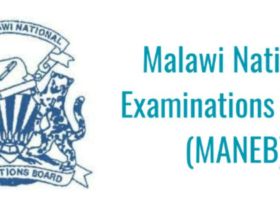Form Three Subject Combinations
A Comprehensive Guide to Selection for Secondary Class: Junior year is a crucial year for secondary school students in Tanzania as it marks the beginning of their journey towards advanced secondary education. During this year, students must select their preferred combination of subjects, which will significantly affect their future career path and prospects. The decision made during this period plays an important role in shaping the academic and professional trajectory of a student in Tanzania.
Given the wide range of subject options available, students often find it difficult to determine the most suitable combination that aligns with their interests and aspirations, whether they lean towards the arts, business, or sciences. This comprehensive guide aims to provide detailed information to help students make well-informed decisions regarding their subject choices in Form Three.
A Comprehensive Guide to Selection for Secondary Class
The text discusses the challenge of choosing the best combination of topics to suit one’s interests and goals, especially with numerous options available/A Comprehensive Guide to Selection for Secondary Class.
It mentions that the guide will provide comprehensive information to help you make the right decision, covering the benefits of different subject branches and the entry requirements for various university courses.
It promises to guide the reader through the process of choosing the right combination of topics for their future success, regardless of whether their passion lies in the arts, business, or sciences in A Comprehensive Guide to Selection for Secondary Class.
What are Subject Combinations
In Form Three, students must choose their subject combinations, which will have a significant impact on their academic and career paths. It is essential that students have a thorough understanding of the subject combinations available in order to make informed decisions.

These decisions will shape your future educational opportunities and potential career options. Therefore, students should carefully consider their interests, strengths, and long-term goals when selecting their subject combinations. Additionally, seeking guidance from teachers, parents, and professional counselors can provide valuable information and support in making this important decision.
See also: Form Three Subject Combinations: A Comprehensive Guide to Choosing Arts, Business, or Science
In A Comprehensive Guide to Selection for Secondary Class, students have the option to choose from three core subject combinations:
1. Arts: This combination usually includes subjects such as History, Geography, Kiswahili, Christian Religious Education (CRE) and other humanities and social sciences subjects.
2. Business: The business combination usually includes subjects such as Commerce, Accounting, Business Studies, Mathematics and other related subjects that focus on the principles of business and economics.
3. Science: The science mix usually includes subjects such as Physics, Chemistry, Biology, Mathematics and other science-related subjects that focus on the principles of the natural world and scientific research.
Form Three students have the opportunity to choose one of these subject combinations based on their interests and career aspirations. Each combination provides a different set of skills and knowledge that can prepare students for higher education and future careers.
Factors to Choosing Subject Combinations
When choosing Form Three subjects, students should consider several factors to ensure they make the right decisions that match their interests, skills and career aspirations. The following paragraphs provide guidance on important points to consider/A Comprehensive Guide to Selection for Secondary Class.
1. Interest and Passion: It is important that students choose subjects that really interest them. This will not only make studying more enjoyable, but will also increase the likelihood of academic success.
2. Career Aspirations: Students should consider their future career goals when choosing subjects. Certain careers may require specific subjects or combinations of subjects, so it is important to research the subject requirements for your desired career path.
3. Academic Skills: Students should evaluate their academic strengths and weaknesses when selecting subjects. It is important to choose subjects that align with their abilities to ensure they can excel academically.
4. Prerequisite subjects: In A Comprehensive Guide to Selection for Secondary Class, Some subjects may have prerequisites for higher education or specific career paths. Students should be aware of these prerequisites when choosing their subjects.
5. Subject combinations: Students should consider how their chosen subjects complement each other. Certain subject combinations can provide a well-rounded education, while others may be more specialized and focused.
6. Guidance from teachers and counselors: It is beneficial for students to seek advice from teachers and school counselors when choosing subjects. These professionals can provide valuable information and guidance based on the student’s strengths and interests.
By considering these factors in A Comprehensive Guide to Selection for Secondary Class, students can make informed decisions when choosing their Form Three subject combinations, setting themselves up for academic success and aligning with their future career goals.
See also:








Leave a Reply